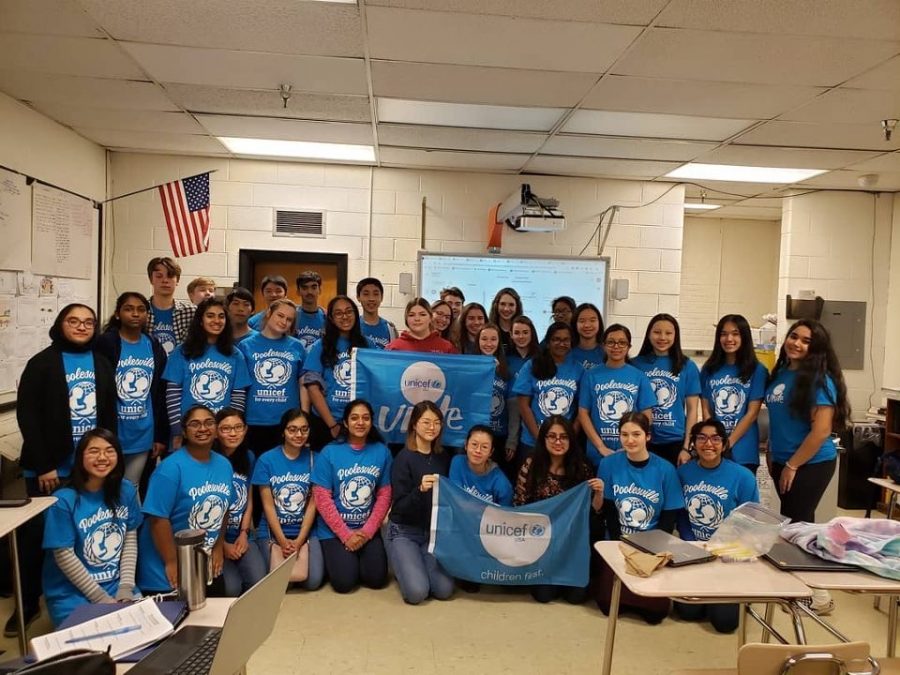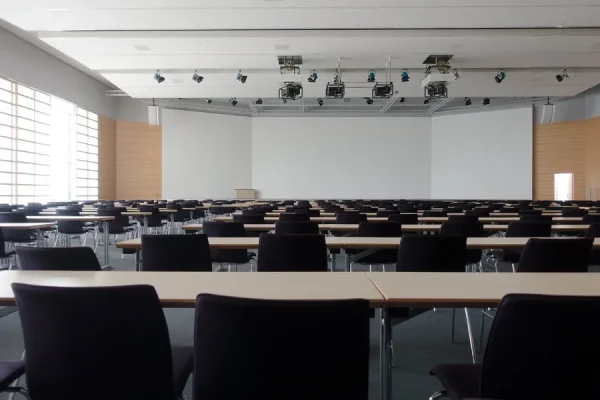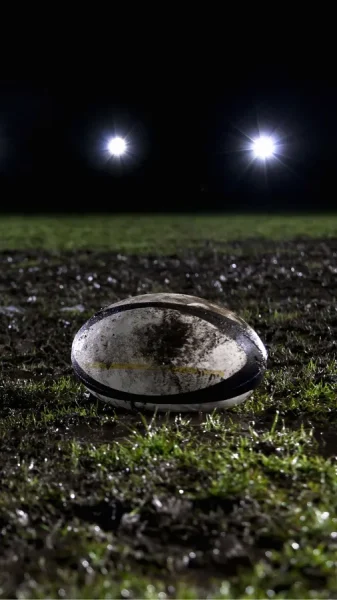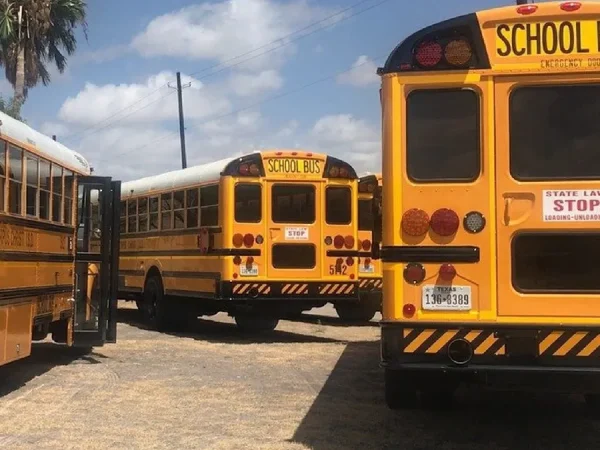Less Bonding, More Learning in Virtual Extracurriculars
UNICEF Club gathers in-person in the previous school year, though unable to do the same at the start of the 2020-21 school year.
Taking to a virtual format due to COVID-19, extracurricular activities struggle with developing close-knit communities, but capitalize on opportunities for learning experiences.
As a part of their Fall Recovery Plan, Montgomery County Public Schools continue the ban of in-person classes and extracurriculars. PHS currently has 61 listed clubs, only five of which have not explicitly proven virtual continuation, not accounting for the countless sports teams, which are hosting virtual webinars and engagements. With the online shift, each group has experienced its share of struggles and benefits, the most common issue being a lacking community aspect.
Senior Smrithi Chakravarthy, current UNICEF Club president, described this missing element.
“Something we’ve really noticed is our club has always had such a close-knit community, and that’s something that you can definitely see is going to be different, just because it’s not the same virtual,” Chakravarthy said.
She commented on how participation appears to be lacking on Zoom calls, and noted a slightly-less-than-average number of students in the UNICEF club this year. However, to compensate for these struggles, the club sets aside time during their weekly meetings to participate in bonding activities.
Lauren Perl, senior captain of the Debate Team, and president of the Amnesty Chapter, has noticed a similar issue.
“While we’re doing everything we can to try [to build] the community, the fact is just… the team is really large… most of these kids haven’t even met each other,” Perl commented about Debate.
As there’s a much larger group of about 80 students involved in the club this year, to not be in the building and physically interacting with the team has certainly posed its disadvantages regarding relationships. As with UNICEF, there is an increased focus on team-building activities during Debate calls.
“This year we are making a very active effort to make Debate a community” Perl added.
In addition, individual sports teams share the goal of team-building, and are no longer divided between junior varsity and varsity. Regina Grubb, the athletic director, expressed the value of community.
“We want the students to have fun, build relationships, and make connections with one another while also learning about the sport,” Grubb said.
Her note on learning about sports touches upon another aspect of virtual activities: new opportunities for learning experiences. In fact, athletics have hosted Booster presentations and guest speaker events to continue the involvement and development of athletes, including over 200 people on one call.
This sentiment of learning is shared by William Lewis, the director of the Midnight Players theatre program, as he plans for an improvisation-based virtual show this fall. He emphasized the importance of improvisation practice, as it facilitates actor growth through a beginner-friendly process. Though unable to perform their usual fall play, the Midnight Players are working to continue developing acting skills.
The Amnesty International and UNICEF clubs have also been leading informational and interactive webinars. Both clubs hosted events over the summer: UNICEF led a tutoring initiative and Amnesty directed a mentoring program on phone bank lobbying. Each event spanned multiple weeks and involved a diverse group of about 50 participants.
Debate, too, has been seizing opportunities to encourage learning experiences. The team, having gained a larger-than-average amount of students this year, now plans to split into a Debate “Team” and a Debate “club.” In doing so, students who do not wish to participate in tournament competitions are still able to develop debate skills via workshops and interactions with captains and team members.
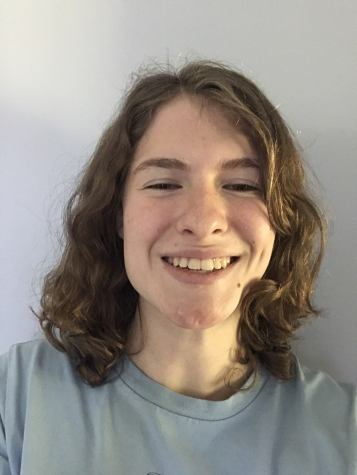
Beat: Arts
Brenna Girard is a Senior in the Humanities House. She participates in PHS’ Midnight Players theatre group, is a defender on PHS’ girls...


